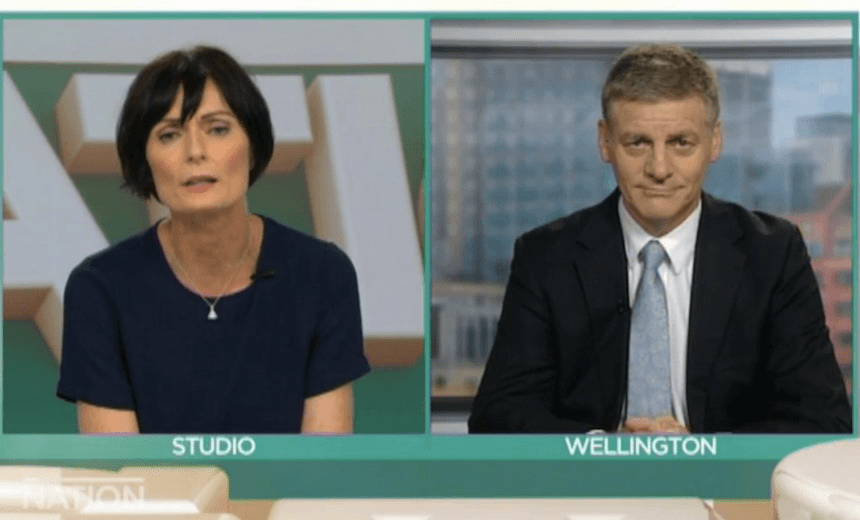Duncan Greive watches the ’70s style politics show The Nation, and finds a lot to love.
TV3’s The Nation isn’t that old. It was founded in 2010, but despite the flash modern set and the lively twitter conversation which accompanies it, the show might be the most old-fashioned to air on New Zealand television.
It returned to our screens at 9.30am last Saturday, primetime only if you’re a dairy farmer on a break from tugging the udders. And, after its opening credits, we hit an interview conducted via a video link. Which is pretty modern – except that it lasted for 30 minutes!
30 minutes is longer than either 7 Sharp or Story have to play with in their entirety. Longer than an entire episode of 3D Investigates or Campbell Live, two shows deemed too outdated to live in the modern TV3.
It was all you can eat Pizza Hut in a snackable era. And it was delicious. Host Lisa Owen had spent three years fighting for the right to interview Arthur Taylor, a roguish serial prison escapee mystifyingly compared to Han Solo and Batman in the intro. The Department of Corrections had spent $86,000 trying in vain to stop her.
Abominable, unconscionable behaviour from the Department – but it was easy to see why they were so desperate to keep the man locked a long way from a camera. He was terrific talent, funny, mischievous and whipsmart – probably the nation’s finest jailhouse lawyer. He had so much to say, all of it nightmarishly bad for Corrections.
Gangs run the prisons. Cigarettes are everywhere. Fight clubs pre-dated Serco. Every minute another revelation. And, because Owen is such a skilled interviewer, we learned a hell of a lot. She wouldn’t let him evade, but would let him speak. Combine that with the extraordinary – by current standards – length of the piece and you had easily the most absorbing television interview of the year to date.
Afterwards she spoke with Bill English for nearly a quarter hour, talking about housing policy and Auckland local body politics with a level of detail and dispassion it’s been hard to find lately. The show makes a virtue of its off-peak timeslot, doing everything you’re not supposed to do in modern television and showing why those who remember the ‘70s and ‘80s might occasionally be right in their nostalgia for the good old days.
These lengthy interviews don’t always work – in the lead-up to the 2014 election Stephen Joyce and Grant Robertson bickered cynically throughout – but when they do they’re incredibly valuable.
The show closes with a panel discussion running over an ad break, with three smart people discussing something they know and care about like adults. This week it was Hive News’ Bernard Hickey, Fairfax political ed Tracy Watkins and Otago University law professor Andrew Geddis. All three participated in sober, non-partisan analysis of recent political events, and were given adequate time to put forth their views.
All this makes The Nation sound like it might be… dull? The kind of television people who claim not to own televisions claim to want. Only, it’s not. Because it’s thoughtfully produced, and those long interviews are interspersed with not only Jeremy Corbett and Paul Ego’s fast and silly ‘Politics in 60 Seconds’, but also five minutes of Paddy Gower going mad in the Southern USA.
The current US Republican race is Gower’s wet dream of politics – mad, bad, dangerous and deranged. His report told us nothing more than that he was having the time of his life in the midst of that apocalyptic chaos, and functioned as seasoning for the meaty policy and allegation.
The Nation’s not for everyone by any means. But if you enjoy the theatre of politics in this country, and think that occasionally its practitioners can meaningfully impact our lives, then the old-fashioned chat of The Nation is appointment viewing.
Even if that appointment is at a very strange time.
The Spinoff’s television coverage is made possible by our foundation sponsor, Lightbox – please support us by subscribing to this fantastic service, with a FREE 30 day trial.

